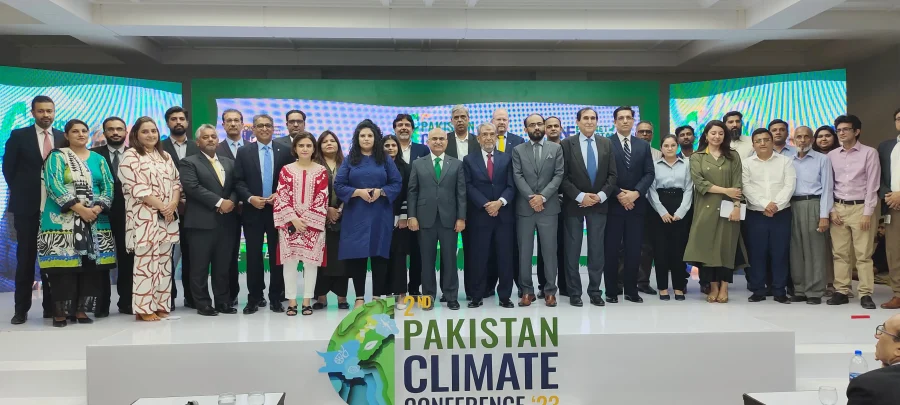Climate change is a global issue but in Pakistan’s case it is evident that climate change is happening now and not a phenomenon that only our future generations will experience,” said Amir Paracha, OICCI President at the 2nd Pakistan Climate Conference on November 01.This is the second consecutive year that the OICCI has organized the Climate Conference with the aim for a better climate action in the country. Despite being responsible for less than 1% of the world’s planet-warming gases, Pakistan is the eighth most vulnerable nation to the climate crisis.
Caretaker Finance Minister ShamshadAkhtar, while addressing the conference, said that to address climate related challenges, Pakistan would require an investment of approximately $340 billion dollars, which is 10pc of cumulative GDP. One of the biggest challenges we have internationally is the issue of trade-off between climate finance and developmental finance. She said that getting money for Pakistan’s climate crisis undercuts other development finance. However, for the first time the Ministry of Finance is partnering with the Ministry of Climate and will attend the COP28 together in November and look towards innovative climate finance mechanisms.
The cost of climate change to Pakistan is substantial and is continuously increasing as the country faces severe economic challenges,” said Minister of Energy Muhammad Ali.Addressing the Conference via a video link, the energy minister said that Pakistan’s energy transition requires substantial investments in energy assets infrastructure by 2040.Ali added that to achieve this, “we must leverage the capabilities of private sector, especially OICCI as it consists of most advanced global organizations who have the technologies and know how to contribute towards Pakistan’s climate future.”
“There is no longer a distinction between ‘finance’ and ‘climate finance’. All financial institutions need to have climate considerations embedded in their decision-making processes,” said Philip Skinner, MD, GuarantCo.
In his opening address, Paracha said that as a collective of more than 200 multinational corporations in Pakistan, the OICCI launched the Conference last year with a sense of responsibility and accountability. “Taking responsibility for our footprint, we are working towards minimizing our environmental mark as much as we can by implementing changes within our own operations and also engaging with other key players in the ecosystem,” he added. The themes for the Conference were in line with the upcoming COP 28 scheduled to be held in UAE by the end of November.
These included but were not limited to Climate Resilience and Capacity Building in Vulnerable Communities, Plastic and Waste Management and Emissions Reduction and Green Energy. Speaking on the importance of discourse on climate change impacts, OICCI Secretary General M Abdul Aleem said that the Conference highlighted “initiatives, projects, and campaigns that show how people from different backgrounds, sectors, and countries are here to work together to address the climate crisis.”Emphasizing on achieving the goals of the Paris Agreement, which Pakistan is a signatory to, RehanShaikh, Vice President OICCI, said that “We have a narrow window of opportunity to avoid the worst effects of climate change and we need to align our policies and investments with a net-zero future.









